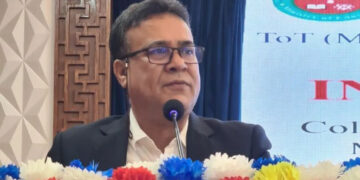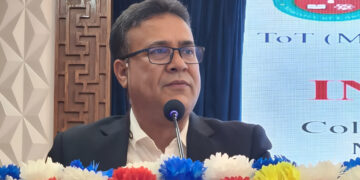Private Universities in Bangladesh are facing action as the UGC prepares to take steps against 16 institutions. In a significant move to ensure transparency and discipline in the private higher education sector, the University Grants Commission (UGC) of Bangladesh prepare for this actions. These universities are under scrutiny for legal and academic violations.
These institutions have been accused of violating the Private University Act 2010, with offenses ranging from illegal student admissions and academic mismanagement to failing to shift to permanent campuses and questionable financial practices.
This step by the UGC signals a renewed push toward accountability and regulation in a sector that has grown rapidly in recent years but is often criticized for its lack of oversight.
UGC Submits Findings to the Education Ministry
Professor Dr. Mohammad Anwar Hossain, UGC Member (Private Universities), confirmed that a detailed report was sent to the Ministry of Education outlining various irregularities committed by these institutions. In response, the ministry has asked the UGC to take necessary steps.
“We submitted a report highlighting mismanagement and legal violations in 16 private universities. Based on this, the Ministry instructed us to take proper action. The matter will be discussed at our monthly coordination meeting,” said Dr. Hossain.
Alarming Irregularities at Private Universities
According to UGC sources, the universities under scrutiny have engaged in a variety of questionable activities. These include:
-
Operating without shifting to their permanent campuses
-
Enrolling students beyond permitted limits
-
Appointing academic staff outside their designated faculty areas
-
Assigning multiple key roles to the same individual, such as serving as both dean and department head
-
Absence of transparent financial audits and spending reports
An anonymous UGC official noted, “Each university is involved in different kinds of irregularities. Therefore, actions will vary depending on the case. For universities that have yet to move to permanent campuses, we may issue final deadlines. If they fail to comply, measures will be taken.”
Read more: Bailey Road fire under control, 18 people rescued alive
The 16 Universities Under Investigation
The UGC has identified the following universities for review and possible action:
-
The People’s University of Bangladesh (Mohammadpur, Dhaka)
-
Sonargaon University (Panthapath, Dhaka)
-
University of Development Alternative – UODA (Dhanmondi, Dhaka)
-
Stamford University Bangladesh (Siddheshwari, Dhaka)
-
The Millennium University (Rajarbagh, Dhaka)
-
Presidency University (Gulshan, Dhaka)
-
Britannia University (Cumilla)
-
Primeasia University (Banani, Dhaka)
-
ASA University Bangladesh (Shyamoli, Dhaka)
-
Bangladesh University of Health Sciences (Mirpur, Dhaka)
-
North East University Bangladesh (Sylhet)
-
Isha Khan International University (Kishoreganj)
-
North Western University (Khulna)
-
Feni University (Feni)
-
Port City International University (Chattogram)
-
Chittagong Independent University (Chattogram)
Consequences for Violations
The UGC has hinted that each university may face different penalties based on the nature and severity of their violations. Some possible outcomes include:
-
A final deadline to move to permanent campuses
-
Restrictions on student admissions
-
Required restructuring of academic leadership
-
Financial audits and closer regulatory oversight
-
In extreme cases, cancellation of operational licenses
Ministry Supports UGC’s Actions
Moza Rokhsana Begum, Joint Secretary of the University-1 Division at the Ministry of Education, confirmed that the ministry received the UGC’s report and has supported its recommended course of action.
“We have instructed the UGC to take appropriate measures based on their investigation. The goal is to bring discipline and ensure quality in private university education,” she said.
Concerns Over Quality and Oversight
Private universities in Bangladesh serve a vital role in expanding access to higher education. However, concerns have long existed regarding the quality of education, ethical standards, and financial transparency in some of these institutions.
A senior academic from a public university stated, “Many private universities began with noble intentions. But over time, commercial interests and weak monitoring have led to a decline in standards. This is harming students and damaging the reputation of the entire sector.”
Need for Reform and Responsible Growth
Experts argue that this situation reflects the urgent need for stronger regulation, enhanced oversight, and reforms in private university governance. The focus must now shift toward ensuring that all institutions meet academic and legal standards while maintaining student welfare and educational integrity.
The role of the UGC, as a regulatory authority, is more important than ever. Timely actions like this will not only address the present issues but also serve as a deterrent for future violations.
The UGC’s move to investigate and potentially sanction 16 private universities marks a critical turning point in the governance of higher education in Bangladesh. For students and their families, these steps offer hope for a more reliable and respected academic environment. For the institutions involved, it is a call to return to the core mission of education and reform their internal structures.
Accountability, transparency, and adherence to academic standards are essential for any nation’s educational progress. By addressing these issues now, Bangladesh can ensure a more sustainable and credible higher education system for the future.


















